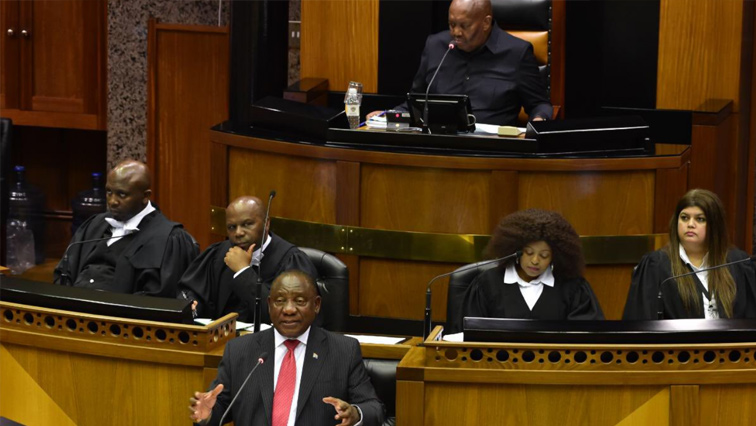South Africa has established a multi-disciplinary revenue committee to address municipal and government debt to Eskom which currently sits at around R50 billion.
Eskom is part of the committee, and President Cyril Ramaphosa described the debts owed to the power utility as “unacceptable” while speaking to the National Assembly on Thursday, 3 November 2022.
“We have established a multi-disciplinary revenue committee — and Eskom is part of this committee to address payment of debt to the utility by municipalities and various other organs of state,” he said.
Ramaphosa said the Department of Public Works and Infrastructure had been tasked with helping municipalities and organs of state to pay their power-related debts.
“For the month of September 2022, as an example, the department paid R575 million for property rates and municipal services, and processed invoices to the value of R51 million to Eskom,” he said.
“Where there are disputes, as there often are, the department pays what is not disputed and engages the municipalities for amounts and accounts that are disputed.”
The president explained that the relevant departments and various treasuries participate in regular engagements to resolve all outstanding debt from municipalities and government entities.
“The department of corporate governance and the South African local government associations are part of these consultations that are ongoing for amounts that may be incorrectly reported,” Ramaphosa said.
“This is an ongoing process, and we hope it will continue to gain traction and result in a situation where less and less municipalities, as well as government departments and entities, owe less money to Eskom.”
Ramaphosa was delivering his opening remarks at a meeting of the National Assembly, set up for him to answer various parliamentary questions.
Among the questions were two from Economic Freedom Fighter (EFF) leader Julius Malema, who asked for full details regarding South Africa’s extensive rolling blackouts.
He also asked whether a change of leadership at Eskom may be needed to secure electricity stability in South Africa.
Regarding Eskom’s leadership and more specifically, its CEO, André de Ruyter Ramaphosa explained that he was appointed on a five-year contract in January 2020 and reports directly to the Eskom board, which conducts the relevant performance reviews.
He noted that the new Eskom Board was only appointed on 1 October 2022 and still needs time to plan a way forward.
“The new Eskom board was appointed on the first of October this year and should be given the space to assess what needs to be done to improve the efficiency of the existing plants, and effectiveness of the management and operators at all levels,” Ramaphosa said.
“This is a process I believe they have started to embark on or will be embarking on soon.”
Ramaphosa explained that the recent extensive load-shedding could be attributed to structural and operational causes.
“Among the structural challenges is the fact that there has been insufficient investment at the Eskom level in new generation capacity,” he said.
“New generation builds [were] needed two decades ago, and this has resulted in a national capacity shortage of between 4,000 and 6,000MW.”
ALSO READ: Eskom reveals Kusile unit1 gas failure, possibilities of remaining offline for months
He added that the situation was exacerbated by delays in building the Kusile and Medupi power stations and several other factors.
“This situation obviously was made worse by the delay in building Kusile and Medupi, the faulty design that has accompanied that whole build, state capture and corruption, and the loss of experienced staff,” Ramaphosa said.
“As a result of these challenges, power stations were run very hard to their maximum capacity, with poor reliability on maintenance and neglect of mid-life refurbishments.”
Eskom announced last night that there was a failure at one of Kusile’s flue gas desulphurisation ducts on 23 October.
This could cause Kusile Unit 1 to remain offline for months, and has delayed the return to service of Unit 2 until the power utility concludes an investigation and assessment into the damage.
Source: My Broadband

